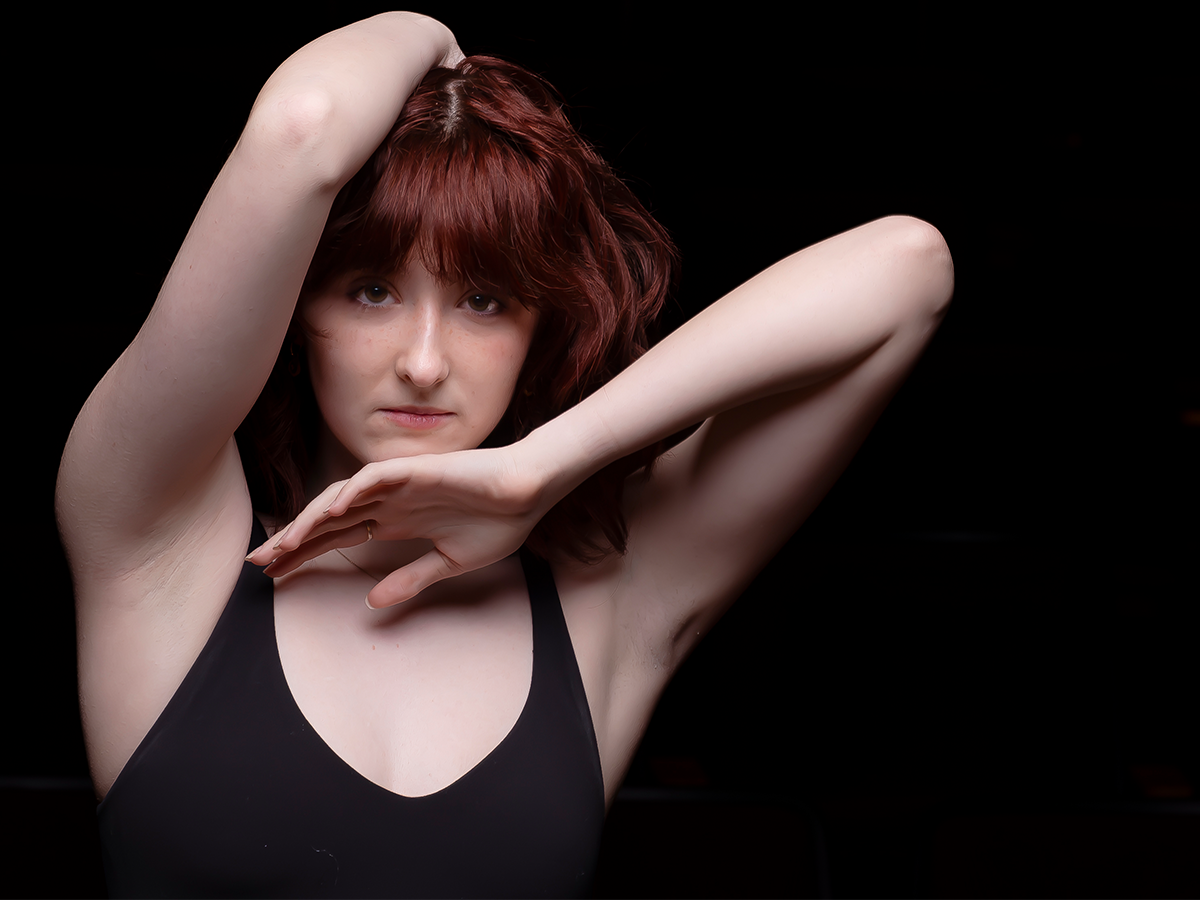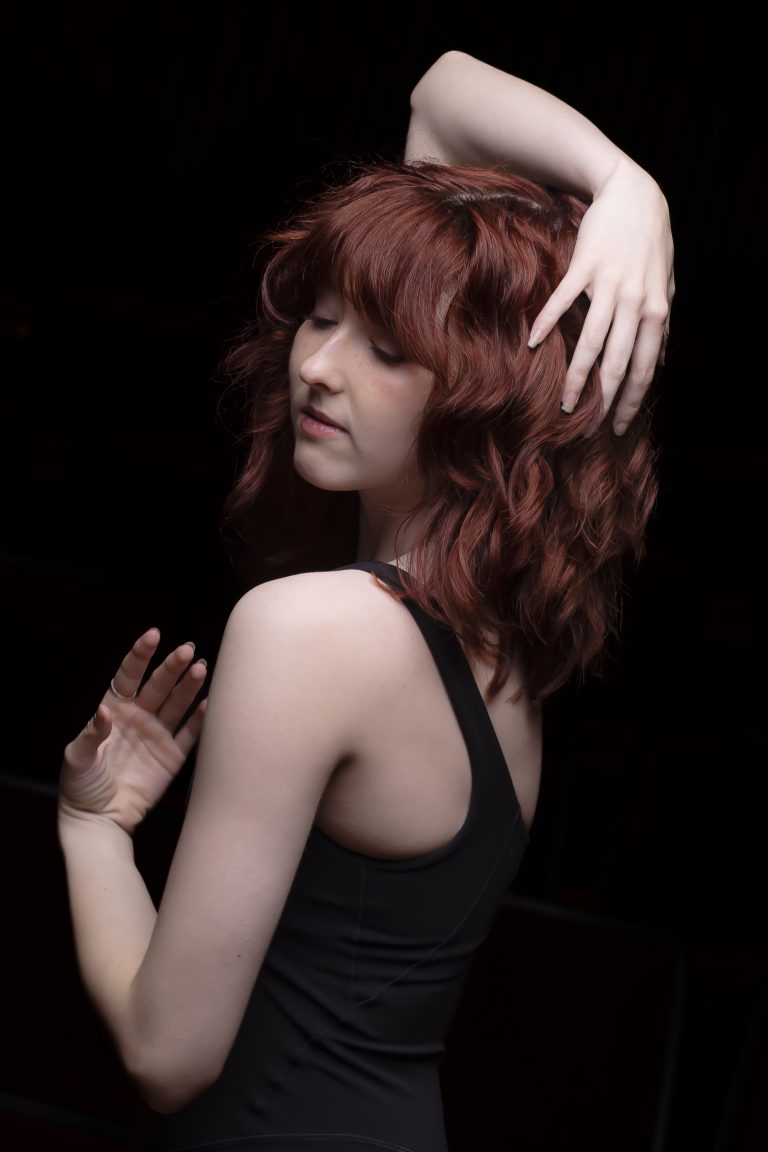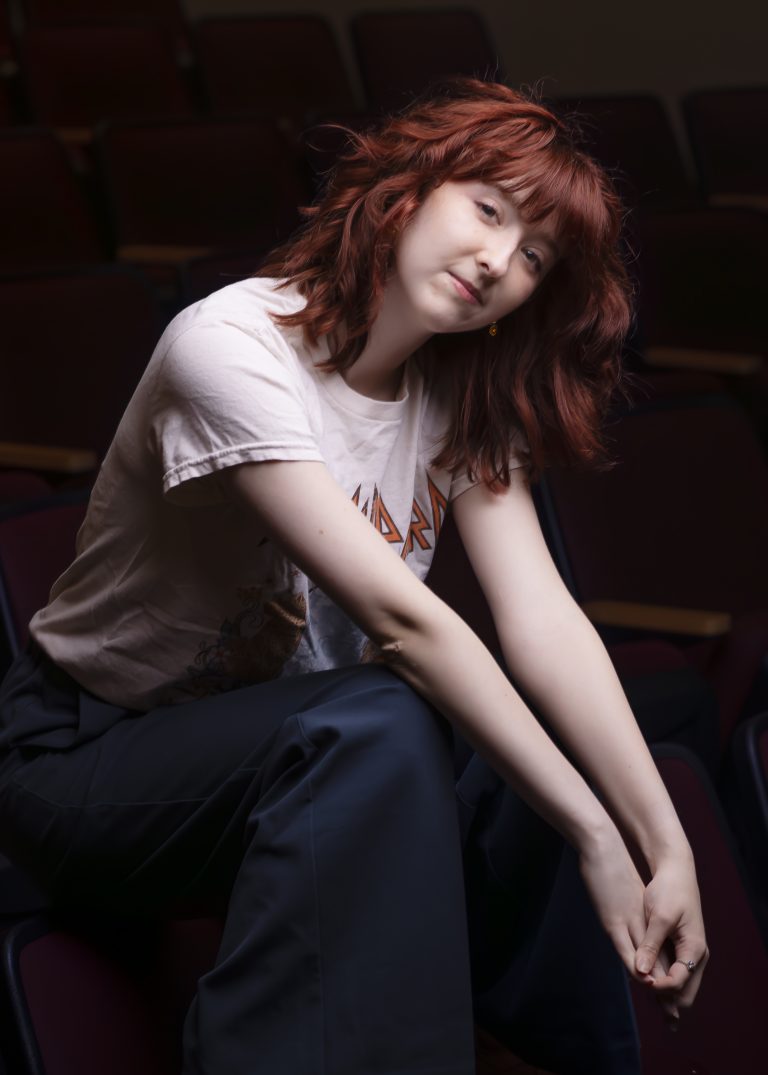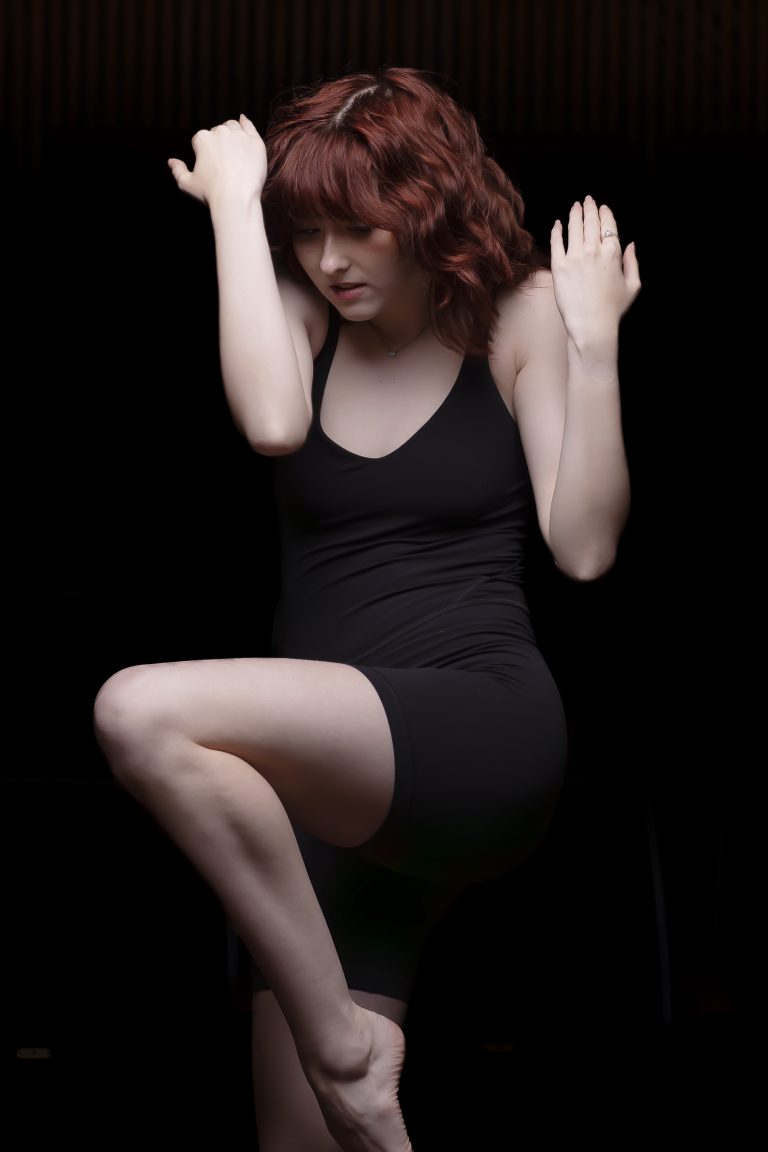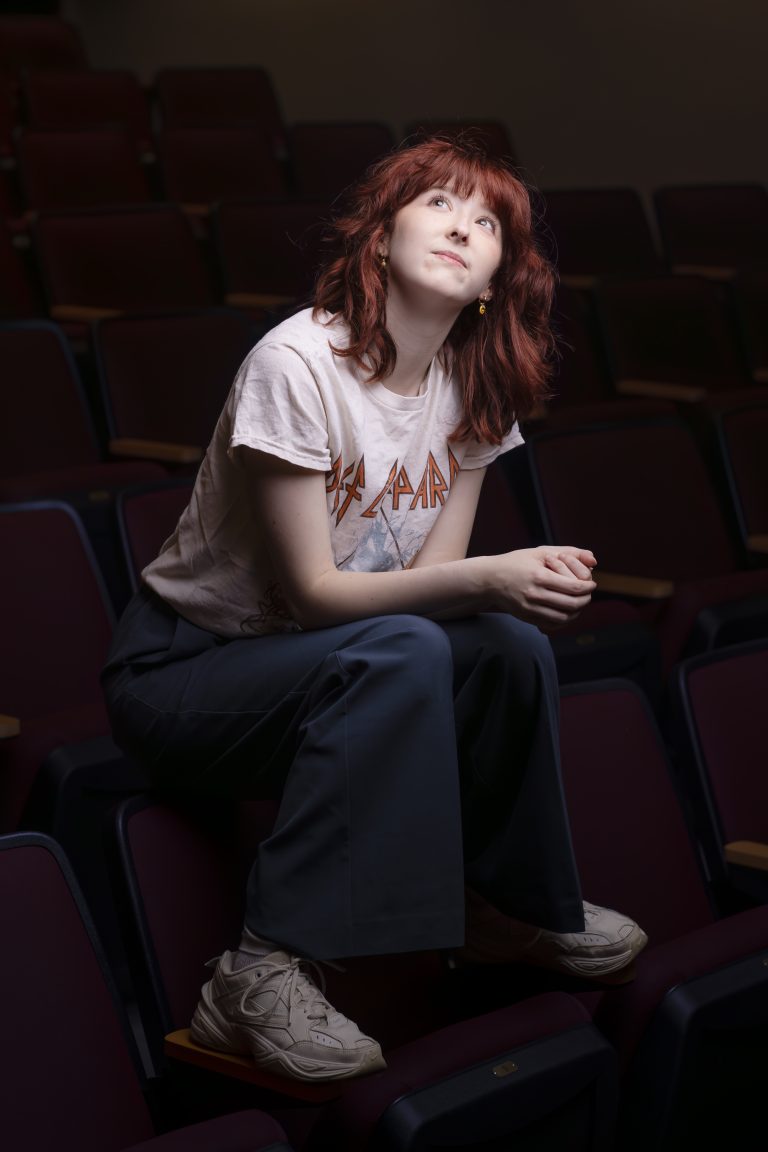Maddie Milner ’27 tells stories through movement and motion.
Maddie Milner ’27, who is autistic, has been dancing since she was three years old, and has evolved as both a dancer and as a choreographer. She uses the medium of dance to tell her own story as a neurodivergent individual, and crafts performances through choreography to allow other dancers to tell their own stories.
She believes her autism provides her a different perspective on dance and makes her more attentive to the sensory issues dancers contend with.
“I think it’s important that we allow stories to be told from different perspectives,” Milner said. “If you allow choreographers that aren’t normative, like the status quo, then you’re allowing stories to be told that wouldn’t necessarily get to be told.”
Milner long knew she was autistic, but she didn’t receive a formal diagnosis until she was 16 years old. Far from being a setback, the diagnosis was an affirmation that allowed her to tap into resources of support and a verification of her unique experience.
“I think the main thing is that it’s not a deficit, it’s just a difference. There is no less than, just different,” said Milner. “You take things on a case-by-case basis and work with the individual rather than the diagnosis.”
Milner had faced challenges as a young autistic dancer, but she continued to grow and she expanded into choreography, saying that “it gave me a chance to dance how I wanted to dance.” She first heard about Elon University from one of the dancers her mother trains and following a successful audition, she enrolled at Elon in fall 2023.
At Elon, Milner said she has found a community of support that embraces her neurodivergence and works to support her. The Office of Disability Resources has worked with her in the classroom and the dance studio to ensure that she is able to participate fully and is positioned to succeed. It was a welcome change from the experiences she had during high school.
“Disability Resources was great when I submitted my accommodations. The willingness to work with me and my accommodations to do as much as I can,” Milner said.
Milner’s autism has impacted her sense of inclusive excellence and what it can mean to value the unique perspectives and experiences of others. She sees how it impacts the support members of the university receive from one another.
“I believe that inclusive excellence means that you are actively trying to support the individual student and what they need,” Milner said.
An Elon College Fellow, Milner is majoring in dance and psychology while minoring in neuroscience. She is combining these disciplines through her undergraduate research, which focuses on how the neurocognition of autistic dancers impacts them in dance settings. She will be presenting a research poster comparing the teaching styles for neurodivergent dancers at the International Association of Dance Medicine and Sciences in Italy in October 2024.
“I’m hoping to research the neurocognition behind the autistic dancer and how it impacts them in a dance setting, both in how they learn differently and more,” Milner said.
Milner emphasizes the importance of focusing on the autistic person rather than the diagnosis, reinforcing that valuing people with various identities is foundational to achieving inclusive excellence.
“If you’ve met one autistic person, you’ve met one autistic person,” Milner said.



